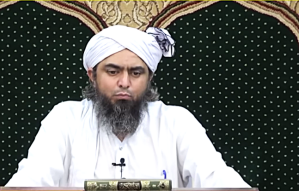
A prominent Islamic scholar who has opposed misuse of Pakistan’s blasphemy laws against Christians and other minorities was arrested on Monday night (Aug. 25) and later charged under a section of the statutes calling for the death penalty.
With 3.1 million YouTube followers of his forthright videos on religion and society, Engineer Muhammad Ali Mirza stated on a video posted on Sunday (Aug. 24) that Christians sometimes use a derogatory term for Muhammad, the prophet of Islam, and complainants stated that by citing the term as used by others he was guilty of blasphemy, according to a First Information Report (FIR).
He was arrested the next night under Pakistan’s preventive detention law and later charged with blasphemy on complaints of Islamist groups opposed to his criticism of misuse of the country’s harsh blasphemy laws and violent Islamic extremist groups. His supporters claim that Mirza’s words were merely quoted in reference to use by Christians and were misrepresented.
The Muslim cleric, scholar and resident of Jehlum city was to be detained for 30 days under Section 3 of the Maintenance of Public Order (MPO) ordinance and later was transferred to Jehlum District Jail in Punjab Province. On Tuesday (Aug. 26) the case was registered against him under Section 295-C of the blasphemy law that calls for mandatory death for disrespecting Muhammad, and Section 11 of the Pakistan Electronic Crimes Act (PECA).
Mirza’s outspoken views have repeatedly stirred controversy in increasingly conservative, Islamist Pakistan, and he has survived at least four assassination attempts. Lahore-based attorney J. Sajjal Shaheedi said the arrest was more about silencing unfavorable views than maintaining public order.
“The arrest of Engineer Muhammad Ali Mirza is not about public order,” Shaheedi wrote on X. “It is about silencing independent voices who dare to question sectarian clergy and challenge the monopoly of state-approved lapdogs. Meanwhile, violent mobs like TLP [Tehreek-e-Labbaik Pakistan], who block highways, attack police and hold the state hostage are coddled, unbanned and quietly paid off. This selective justice is why Pakistan is stuck in perpetual chaos.”
Section 3 of the MPO authorizes police to arrest and detain suspected persons to prevent “any person from acting in any manner prejudicial to public safety” or to maintain public order. Originally enacted in 1960, the MPO allows for preventive detention and restrictions on speech and publications to maintain public order, which critics, including Human Rights Watch and Amnesty International, have argued is vague and abusive.
Mirza previously had been arrested in May of 2020, charged on allegations of making derogatory comments about other religious scholars. He was later released on bail. In 2023, Mirza found himself embroiled in yet another controversy with a blasphemy charge filed against him in April of that year.
The popular self-styled cleric has repeatedly condemned mob violence against Christians and other religious minorities accused of blasphemy; he has also criticized such actions against accused Muslims. He has called for amending the controversial blasphemy laws, highlighting several times how they were being misused for economic reasons or to settle personal scores and vendettas.
Mirza has said in several video lectures that Pakistan must amend the blasphemy laws as they are being abused by extremist groups to target innocent people.
“There’s a need to add a clause related to forgiveness so if someone says they have inadvertently said something deemed blasphemous and are ready to tender an apology before a court, the matter should be closed immediately to protect the accused’s life,” he says in one video.
The cleric has also condemned state authorities for patronizing Muslim extremist groups such as the TLP, a leading proponent of the blasphemy laws that has been involved in violence against Christians and the minority Ahmadi sect, including the Aug. 16, 2023 attacks on multiple churches and homes of Christians in Jaranwala, Faisalabad Division.
The group’s members were also involved in the lynching of an elderly Christian, Nazeer Masih Gill, in Sargodha in May 2024 on a false blasphemy accusation and ransacking of his house and shoe factory.
Pakistan ranked eighth on Open Doors’ 2025 World Watch List of the most difficult places to be a Christian.






